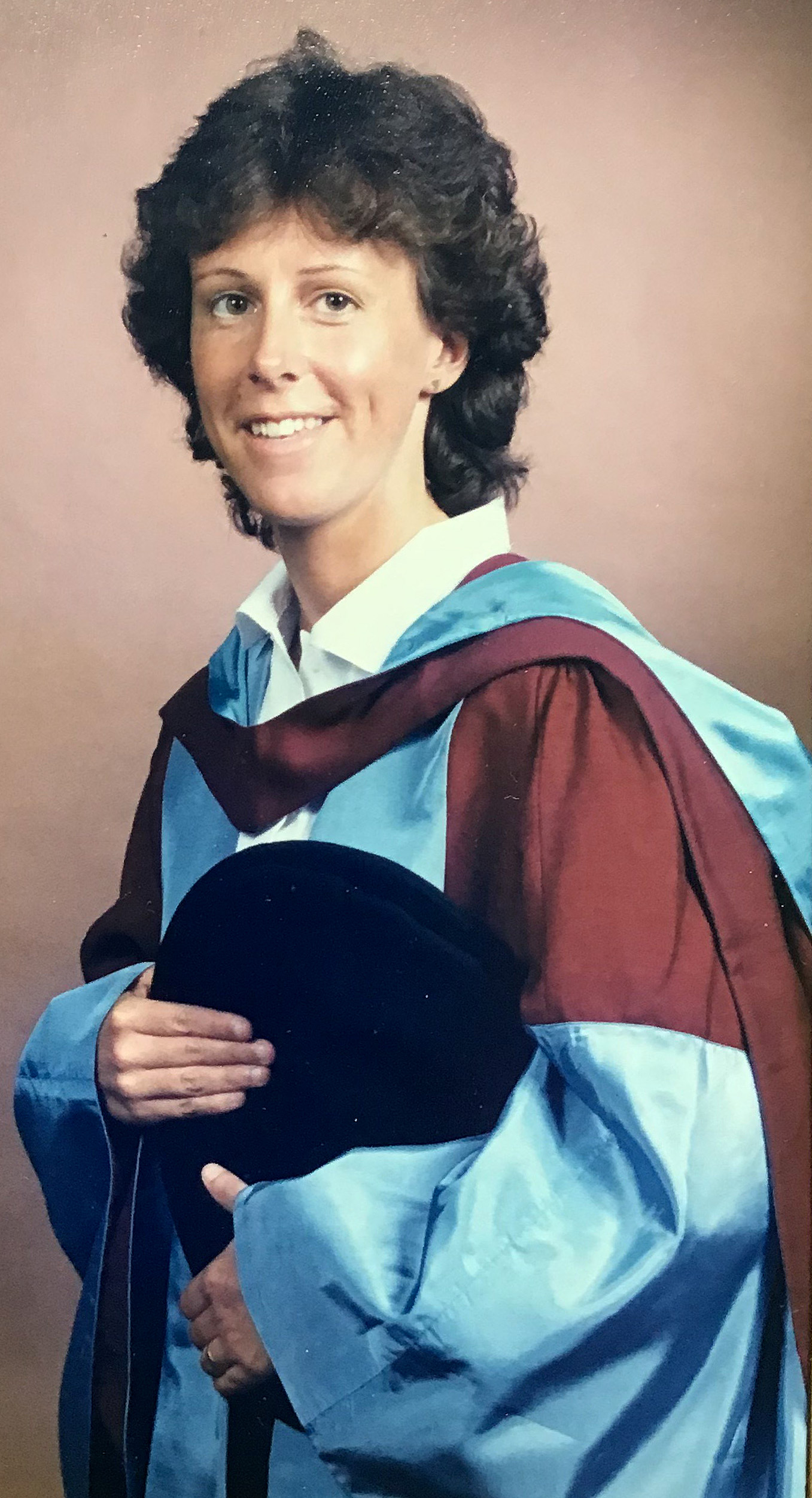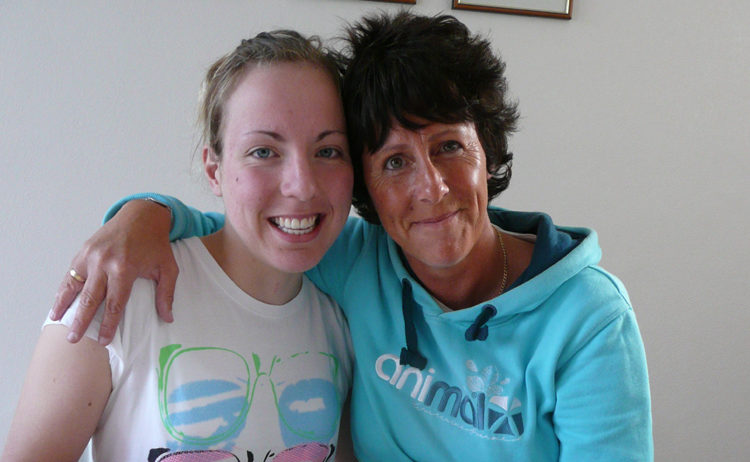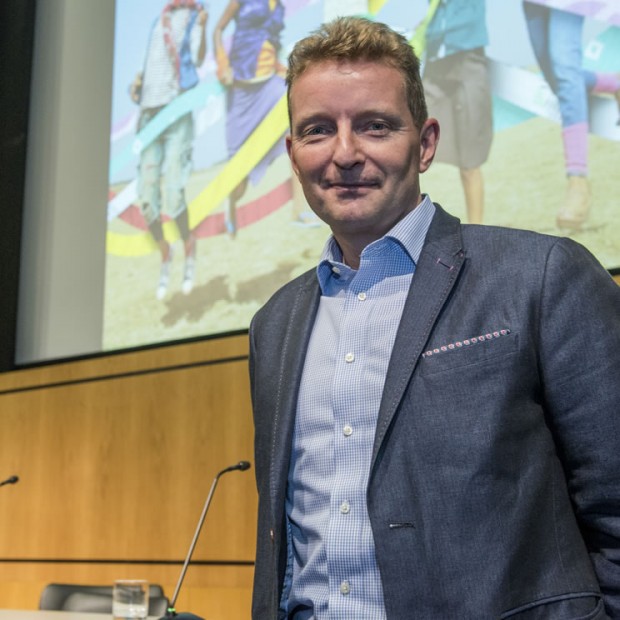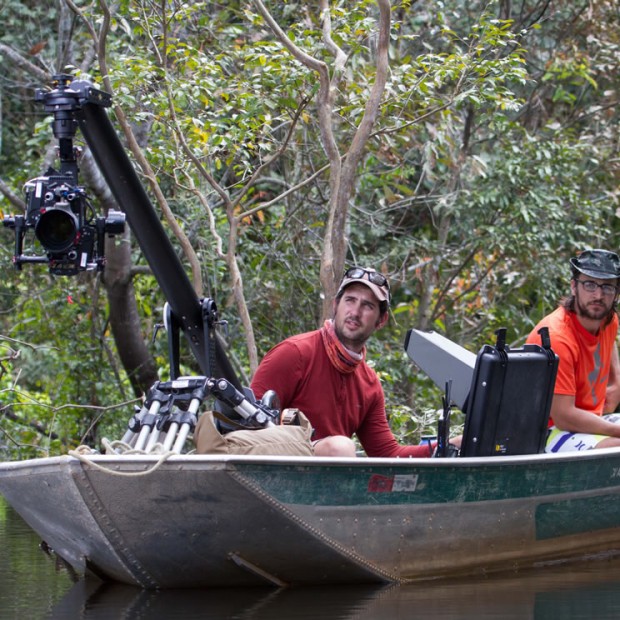Hartley News Online Your alumni and supporter magazine
Alumna, Penny Phillips (PhD Medicine, 1989) enjoyed her time at Southampton, and was delighted when her daughter Anna also decided to join the University as a student. After Anna passed away, Penny wanted to do something meaningful in memory of her daughter, a strong advocate for mental health and social justice. The Anna Phillips bursary was set up in her honour and supports talented medical students at Southampton to achieve their dreams.
–
In 1985 I graduated from the University of Manchester, with a degree in pharmacology. I was very keen to go on to complete a PhD and I couldn’t believe my luck when I heard about research at Southampton which related to airway hyperresponsiveness in asthma (the subject of my final-year project).
There was something special about Southampton that just struck me the minute I arrived. My interview was held at Southampton General Hospital – my PhD was based there which really appealed to me. It’s much larger now but even then, it was an amazing hospital. I went to campus to look around and it felt so friendly and comfortable. It’s difficult to explain the feeling of a place, but I knew, very quickly, that this was going to be ‘right’.

My PhD was funded by the Science and Engineering Research Council – as part of that arrangement I spent a short time in industry, at a pharmaceutical company in Swindon. It was a very rewarding time. I was supported to learn some techniques that were going to be relevant for my PhD.
It wasn’t really until I got back from Swindon and started to get to know both my supervisors that I realised what an amazing opportunity I’d been given. My research was based within the Immunopharmacology Group – it was a very dynamic group led by Professors Stephen Holgate and Martin Church. I was propelled along in my research and inspired by everyone around me. I felt supported and guided, but always given the freedom to explore and progress different ideas.
My PhD focused on investigating the role of inflammation in the airways. Although immersed in academic research, being surrounded by patients and healthcare professionals really allowed me to see the potential impact of our research.
There was also a great social side to being based in the hospital, and I was really fortunate to meet so many different people. I enjoyed myself so much that I stayed on as a postdoctoral research fellow for several years. It was a really happy period in my life. Although based at the hospital, I did spend a lot of time on campus. I remember how well we networked, even without social media! We often met up on Southampton Common for very competitive games of football and rounders, or just to ‘chill out’, setting the world to rights with very lively conversations! We were quite a diverse group, and I’m so grateful for this experience. I made some incredible friends.
Whenever I’ve returned to the campus, I still feel an overwhelming sense of warmth and friendliness. It’s a world-class university but it hasn’t lost its soul.
The Anna Phillips bursary

My daughter, Anna, was thrilled to get a place at Southampton. She received a number of offers but choosing was easy for her – it was nothing to do with me! I stood well back and let her make her own decision. Anna picked up on the friendliness and warmth of the place, just as I had, and in her words, she felt there was “a really good mix of people”. She took to medicine very easily. Her personal tutor said it came naturally to her and she passed her first-year exams with ease. Anna had no trouble with the course, despite her gradually deteriorating health. She made some really good friends, who were incredibly supportive, and they have been kind enough to stay in touch with me. She was passionate about mental health issues from very early on. She helped to develop and promote Student Minds. She took part in campaigns to promote mental health and wellbeing amongst the students and got stuck into everything. She really loved her time at Southampton.
As the year went on, she began to show some signs of what we now know to be a transient or attenuated form of psychosis. These signs and symptoms can be very difficult for others to recognise. She started to miss home despite having a good network of friends and some amazing support from the department and her personal tutor.
I don’t think Anna would have admitted the degree to which she was struggling. To any students today I would say, don’t ever be afraid to ask for help. It’s so important to openly express how you feel and voice your concerns and worries. Please reach out.
Even once we realised that something wasn’t right, and sought help over the summer holidays, it was difficult for health professionals to diagnose the full extent of Anna’s mental health problems. She wasn’t seen by a psychiatrist, so no-one recognised that she was suffering from psychosis. She was diagnosed with anxiety and seemed very keen to return to University. Sadly, she later ended up being hospitalised after a psychotic episode. The University was brilliantly supportive about her coming home for care.
Anna eventually received care and treatment from Early Intervention in Psychosis services, but very sadly, ended her life on June 1st 2015. Since Anna’s death, my focus has been to work together with the NHS, both locally and nationally, to contribute to improvements in patient care and safety. I have also followed Anna’s example in supporting and developing projects to increase mental health awareness and support in the community.
Anna had very strong values. She had a very strong sense of social justice and understood the importance of inclusion. She spent a lot of time working with a charity which supports children with complex disabilities to communicate, experience the world and fulfil their potential. She had an incredible bond and empathy with anyone who was struggling. Her friends said that if you needed help, she was the one to go to. Despite her own mental health problems – perhaps because of them – she was able to reach out to people and had a deep insight into human nature and what it means to be human.
A friend of Anna’s, who studied medicine on the BM6 programme (the University’s dedicated widening participation Medicine programme) and is now a qualified psychiatrist, told me how much the bursaries would mean to people on that programme. She explained how tired she could become as a student needing to work several jobs to support herself financially, and how the pressure often impacted her own mental health. I think that founding these bursaries is something that Anna would have agreed with. She had this strong sense of equity, of wanting everyone to have the same opportunities.
Anna felt that there wasn’t enough understanding about mental health and how important it is to support people. She was way ahead of her time. She could see the ‘gaps’ in services and the need for joined-up care. I imagine if she had been able to complete her degree she would have gone on to a career in psychiatry. It was so important for us, as a family, to do something that she would’ve been proud of – something that would have meant a lot to her. It’s given us a huge amount of comfort – to know that we’re helping people, in a way that Anna would have wanted.



